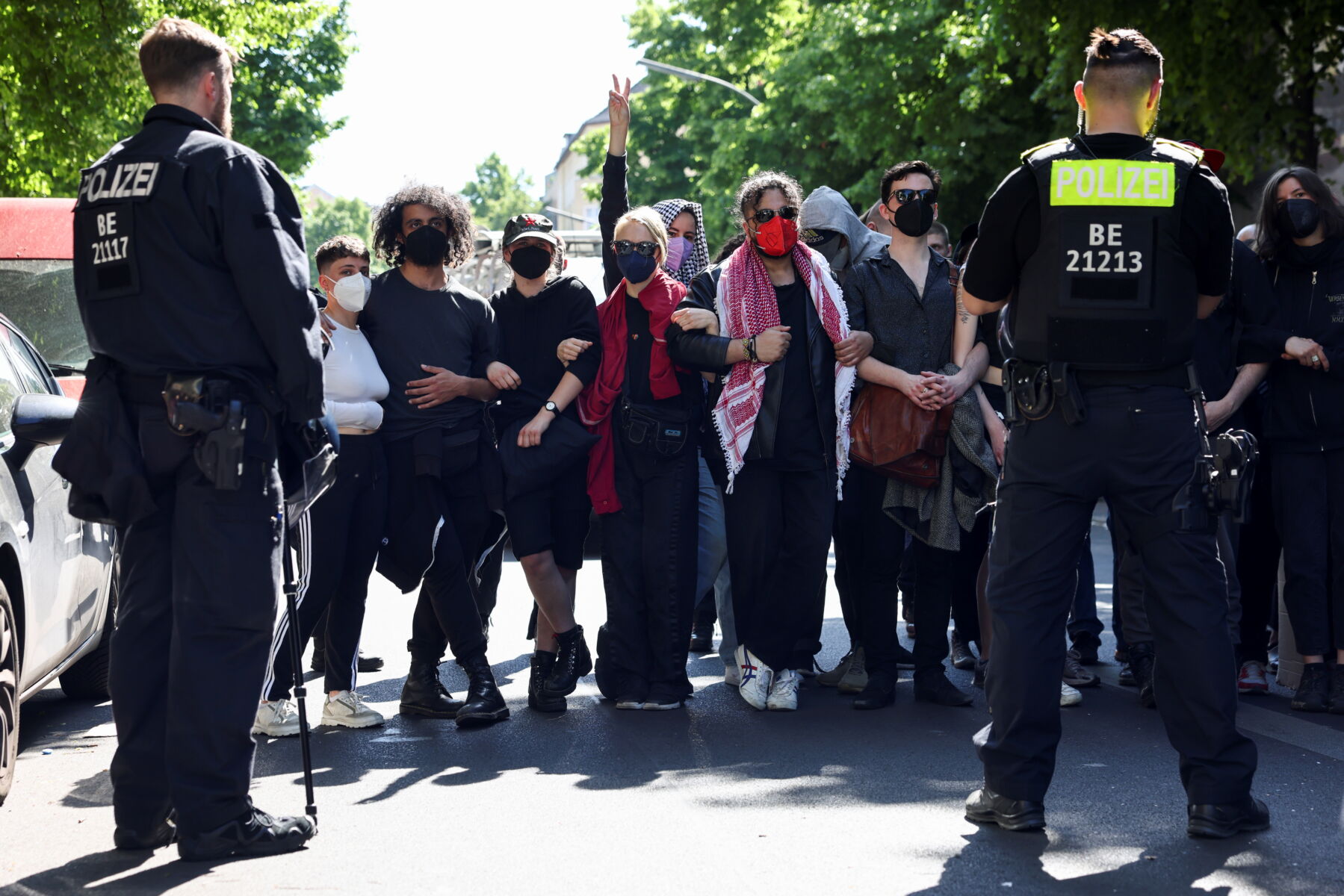Report reveals suppression of pro-Palestinian activism in EU and UK

A recent report by the European Legal Support Center (ELSC) has highlighted the suppression of Palestinian activism in the European Union and the United Kingdom. The study, which focused on the use of the International Holocaust Remembrance Alliance’s (IHRA) working definition of anti-Semitism, revealed widespread restrictions on the right of assembly and freedom of expression related to criticism of Israel.
The report examined three countries, including Germany, where it discovered violations ranging from the dismissal of employees on false charges of anti-Semitism to the denial of public spaces for pro-Palestinian events and defunding of organisations. Such findings resonate with the experiences of many Palestinians living in Germany, who have faced hostility and challenges when attempting to voice their concerns and share their experiences.
One notable example of this suppression occurred in 2017 when two Israeli activists and a Palestinian protested against Knesset member Aliza Lavie speaking at an event at Humboldt University in Berlin. The German media falsely accused the protesters of anti-Semitism, and the university filed a criminal complaint against them for trespassing. After three years of legal battles, the activists were vindicated.
In 2019, the German parliament passed a resolution describing the Boycott, Divestment, Sanctions (BDS) movement as anti-Semitic. This motion has been used to shut down, silence, and censor pro-Palestinian activism, despite German courts ruling against anti-BDS actions by state authorities on several occasions, finding that they violate freedom of expression.
The German authorities’ anti-Palestinianism extends beyond suppressing criticism of Israel. Their response to attempts by the Palestinian community to mark the Nakba—the word Palestinians use for their ethnic cleansing from their homeland—demonstrates a desire to deny Palestinian existence in public spaces. In one instance, Berlin police banned a rally to mark the Nakba, and two courts upheld the decision. Despite this, hundreds of Palestinians and their allies took to the streets in small groups, only to be met with overwhelming police presence and hostility.
The Palestinian community in Germany is one of the largest in Europe, but they face invisibility, intimidation by German police and institutions, surveillance, and dehumanisation in the media as anti-Semites and potential terrorists. These tactics aimed at depoliticising Palestinians can affect their residency status, job search, or even accommodation.
Despite these challenges, Palestinians in Germany continue to resist state repression and silencing. A new generation of Palestinians refuses to comply with German state diktats and remains vocal in the face of humiliation and pressure. Organisations like Palästina Spricht (Palestine Speaks) are not letting any act of repression go by without a public reaction and challenge.
Criminalising Palestinians for speaking up for Palestinian rights, while neo-Nazis are allowed to raise their fascist slogans in public, is Germany’s moral failure. It is time Palestine is freed from German guilt. It is time Germany stops demanding that Palestinians pay for its historical sins and embraces the Palestinian struggle for justice and liberation.
Latest Thailand News
Follow The Thaiger on Google News:


























